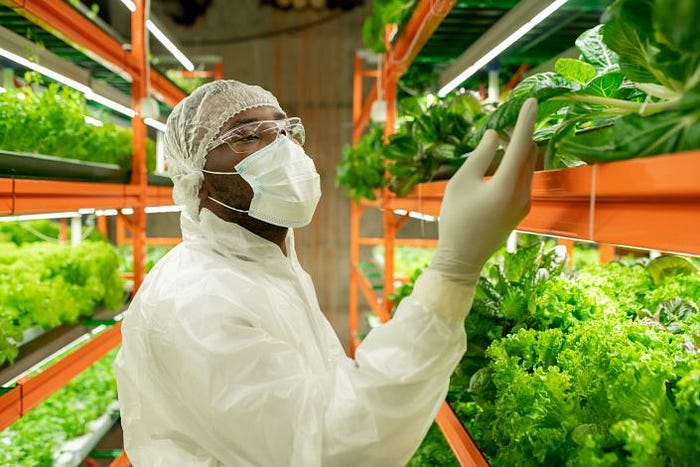Why You Should Consider a Career in Horticulture?

As we go about our daily lives, it’s easy to take for granted the beauty and importance of plants and gardens. But for those who have a passion for horticulture, the world of plants and flowers is a fascinating and rewarding field. Whether you’re interested in growing your own food, designing stunning landscapes, or conserving the natural world, a career in horticulture can be a fulfilling and exciting choice.
Growing Demand for Horticulturists
One of the most significant reasons to consider a career in horticulture is the growing demand for skilled horticulturists. As the world’s population continues to grow, so does the need for sustainable and efficient methods of food production, landscaping, and conservation. According to the Bureau of Labor Statistics, employment of horticulturists is projected to grow 6% from 2020 to 2030, faster than the average for all occupations.
But it’s not just about the job prospects — it’s about the impact that horticulturists can have on the world. From increasing food security to preserving natural habitats, horticulturists play a crucial role in ensuring the health and well-being of our planet.
Job Opportunities in Horticulture
So, what kind of jobs are available in horticulture? The possibilities are endless! From nursery management to landscape design, conservation biology to botanical research, there are many different career paths to choose from.
1. Nursery Management:
Nursery managers oversee the growth and care of plants in greenhouses and nurseries. They must ensure that plants are healthy, well-watered, and properly pruned. Nursery managers may also be responsible for managing inventory, ordering supplies, and supervising staff.
2. Landscape Design:
Landscape designers create beautiful outdoor spaces for homes, businesses, and public spaces. They must consider factors such as climate, soil type, and sunlight when designing gardens and landscapes. Landscape designers may also work with clients to create customized designs and plans.
3. Conservation Biology:
Conservation biologists work to preserve and protect endangered plant species. They may conduct research on plant populations, develop conservation plans, and work with government agencies to implement conservation measures.
4. Botanical Research:
Botanical researchers study the properties and characteristics of plants. They may conduct experiments to understand how plants respond to different environments, or investigate the potential uses of plant extracts for medicinal purposes.
13. Irrigation Specialist:
Irrigation specialists design and install irrigation systems for gardens, farms, and other areas. They must ensure that systems are efficient and effective in delivering water to plants.
If you’re interested in pursuing a career in horticulture, you may want to consider attending a reputable horticulture college in Dehradun. Many of these colleges offer degree programs in horticulture that can provide you with the skills and knowledge you need to succeed in this field.
Benefits of a Career in Horticulture
So, what are some of the benefits of a career in horticulture? For starters, there’s the sense of personal fulfillment that comes from working with plants. There’s something special about watching a seedling grow into a mature plant, or seeing a garden come together after months of hard work.
Another benefit is the opportunity for advancement and professional development. With experience and training, it’s possible to move into senior roles or start your own business. And with the growing demand for horticulturists, there are plenty of job opportunities available.
Industry Trends and Opportunities
Finally, there are some exciting trends and opportunities in the world of horticulture. One area that’s gaining attention is vertical farming — also known as indoor agriculture. This involves growing plants in controlled environments using hydroponics or aeroponics. It’s a more sustainable and efficient way to produce food, and it’s opening up new opportunities for farmers and entrepreneurs.
Another area that’s gaining traction is precision agriculture. This involves using technology such as drones and sensors to monitor crop health and soil conditions. It’s helping farmers make more informed decisions about irrigation, fertilization, and pest management.
Conclusion
In conclusion, a career in horticulture can be a rewarding and fulfilling choice. Whether you’re interested in growing your own food, designing stunning landscapes, or conserving the natural world, there are many different career paths to choose from. And with the growing demand for horticulturists, there are plenty of job opportunities available.
So why not consider a career in horticulture Whether you’re just starting out or looking to make a change in your career, this field has something to offer everyone. And with reputable horticulture colleges in Dehradun offering degree programs in horticulture, you can get started on your journey today!


Comments
Post a Comment